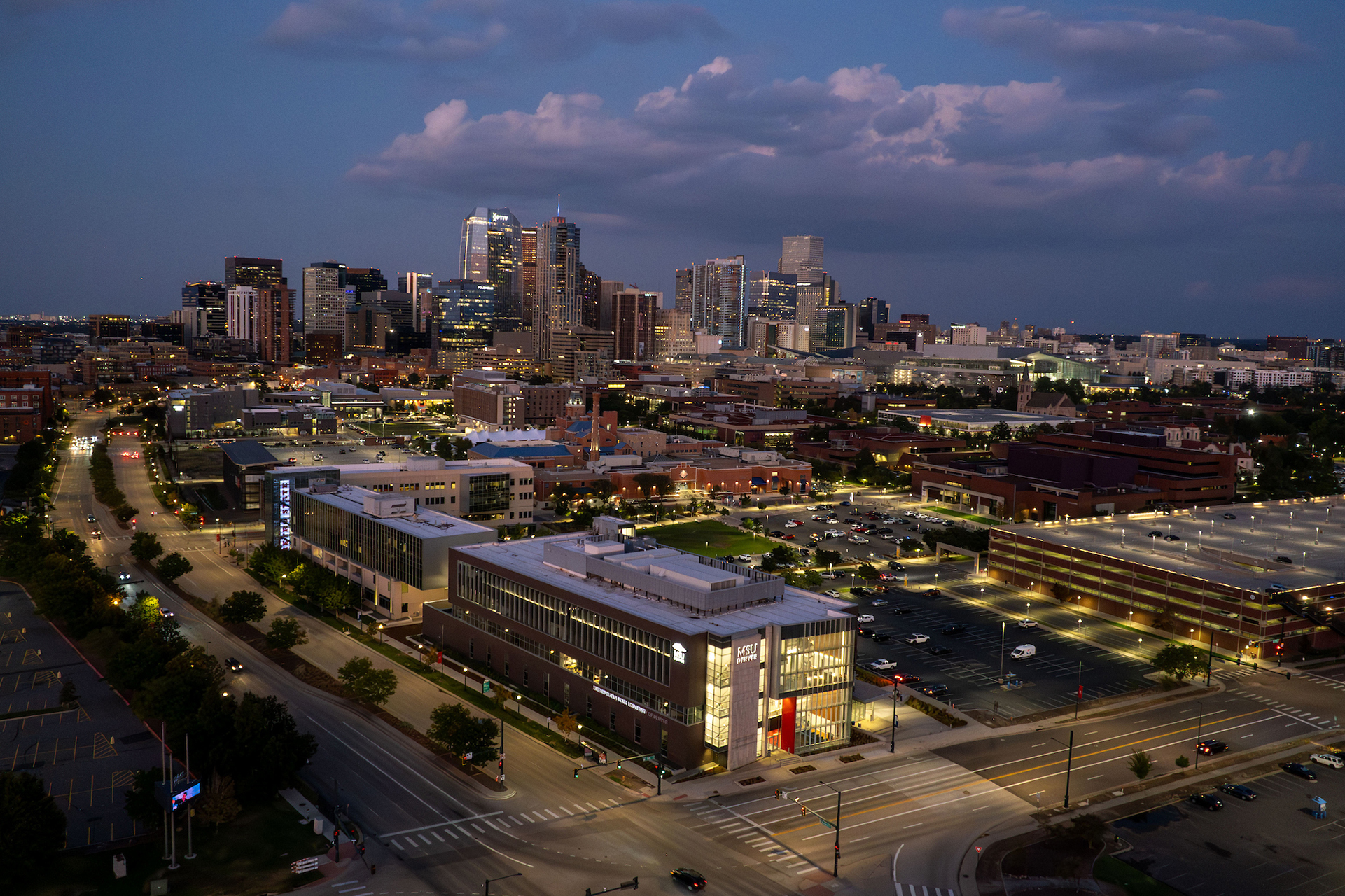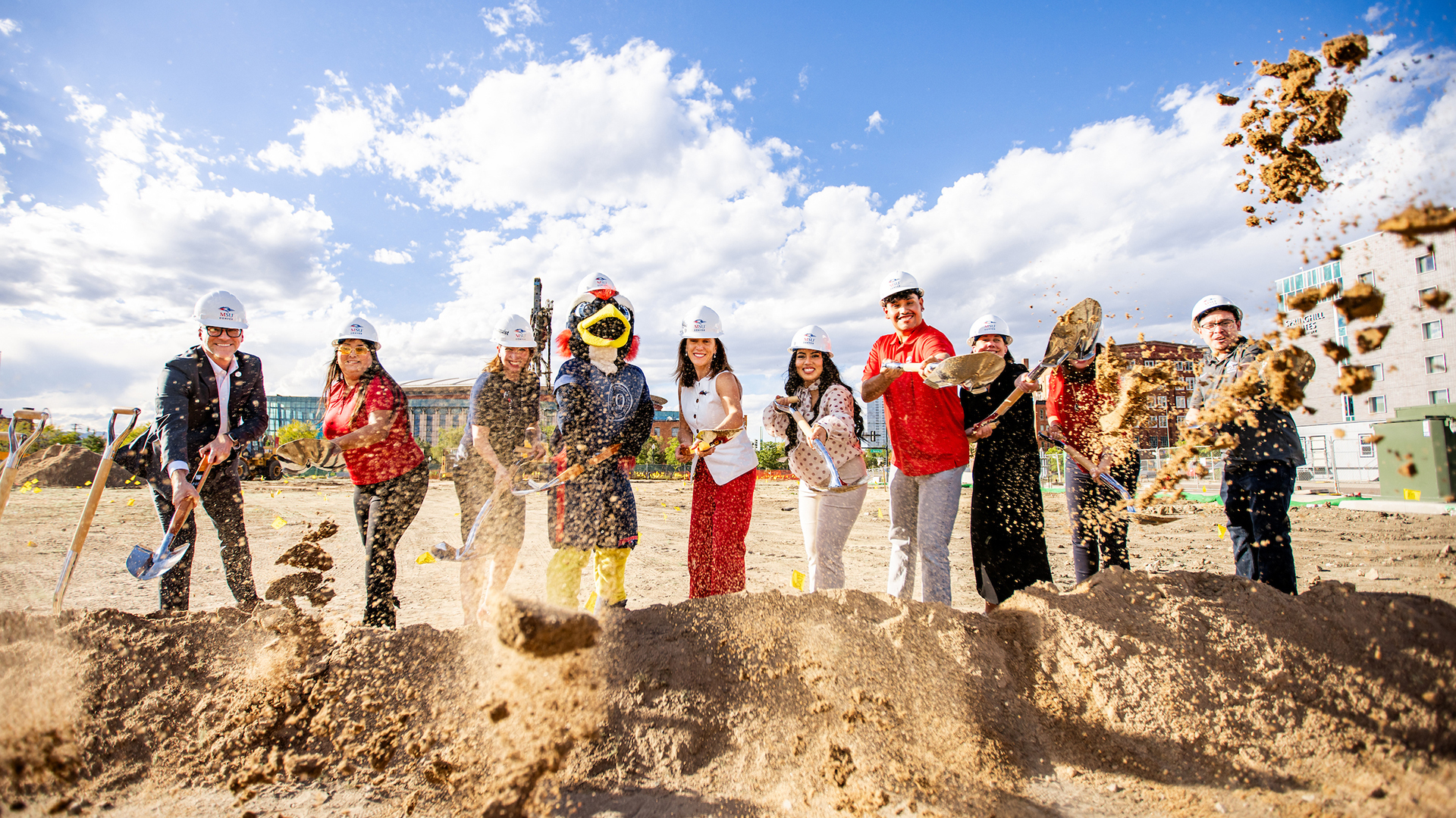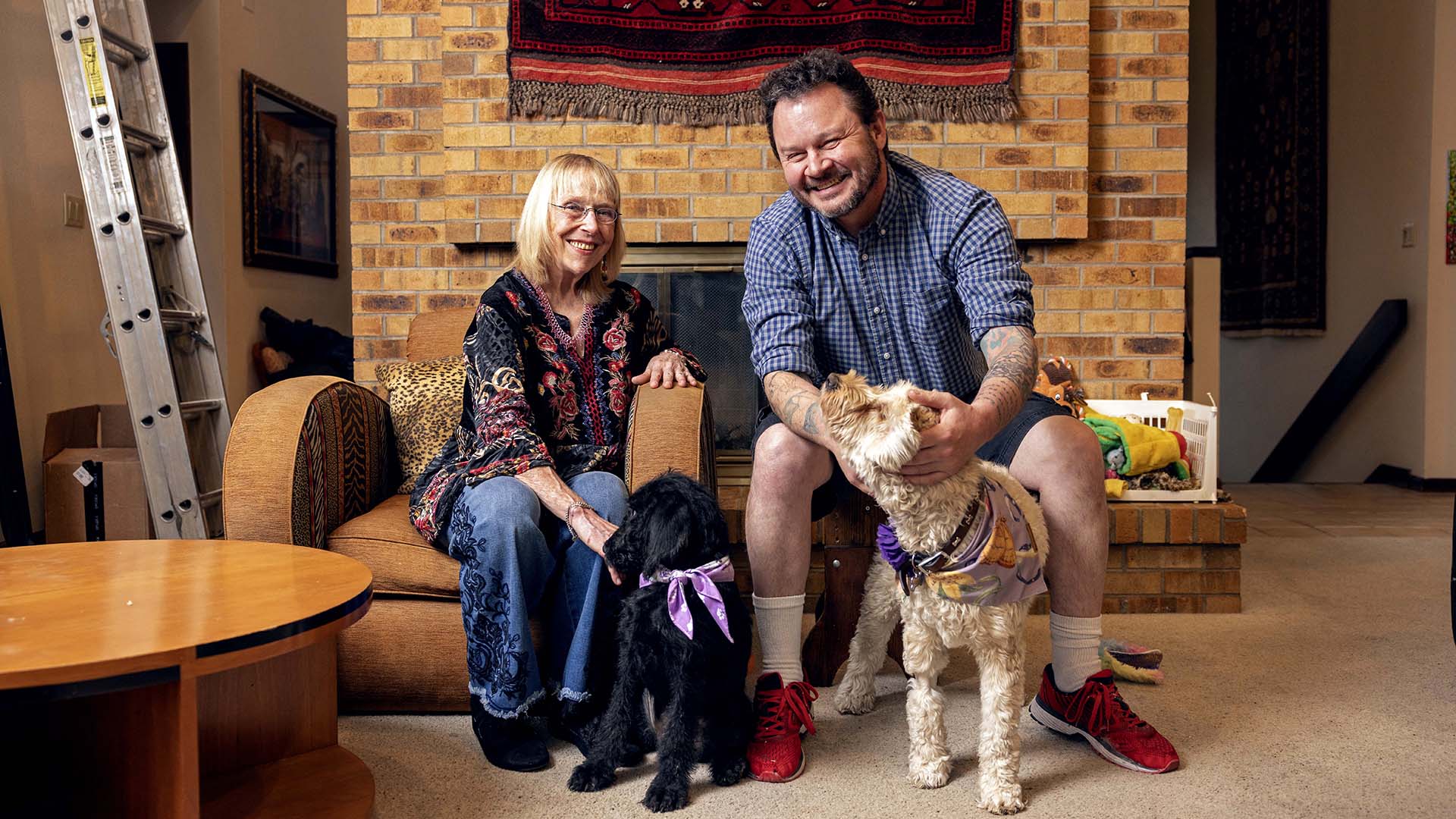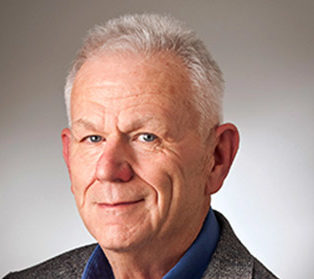Stephen J. Leonard made Colorado history
The legendary historian and professor reflects on 56 years at MSU Denver.
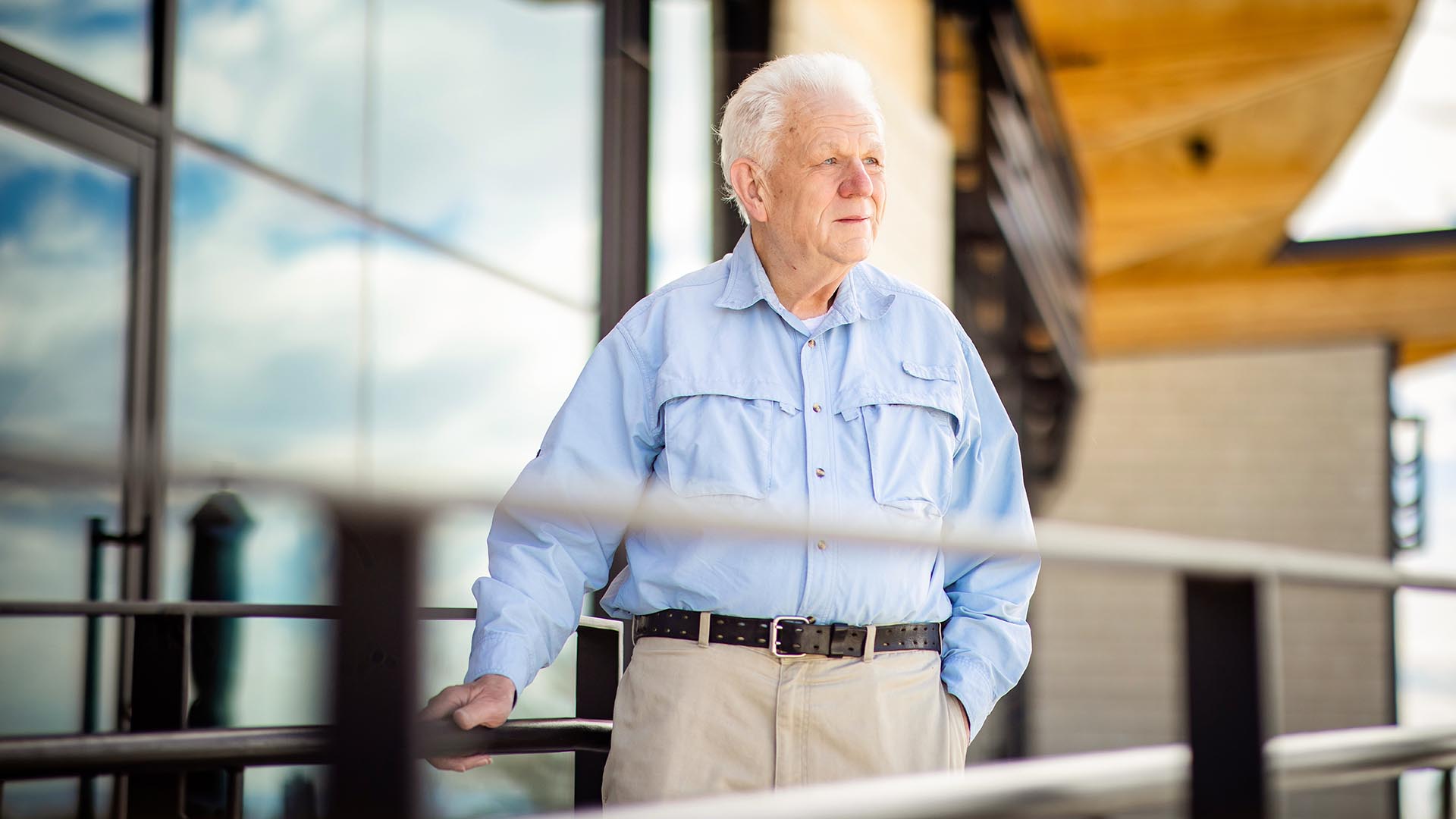
For decades, people who asked legendary Metropolitan State University of Denver historian Stephen J. Leonard, Ph.D., about his retirement plans received the same answer: He didn’t have any. A campus fixture since 1966, Leonard loved teaching and enjoyed his career documenting Colorado history.
Last semester, though, Leonard’s long career finally drew to an end. After 56 years as a professor and a past chair of MSU Denver’s Department of History, the historian is now a professor emeritus. Along the way, he developed a career as illustrious as his lengthy service to the University.
His interest in history developed during high school, and after earning his bachelor’s in History at Regis College in 1964, Leonard went on to receive a master’s in American Studies from the University of Wyoming in 1965 and a doctorate in American History from Claremont Graduate School in 1971. He began teaching at the University — then known as Metropolitan State College — in 1966.
“I had some familiarity with the school because my mother was one of its initial enrollees in fall 1965,” he recalled. When he taught his first class in fall 1966, he says, the school was housed in “half a dozen rented buildings.” Since then, it has grown into the bustling university it is today. Many of its more than 105,000 alumni were Leonard’s students over the years.
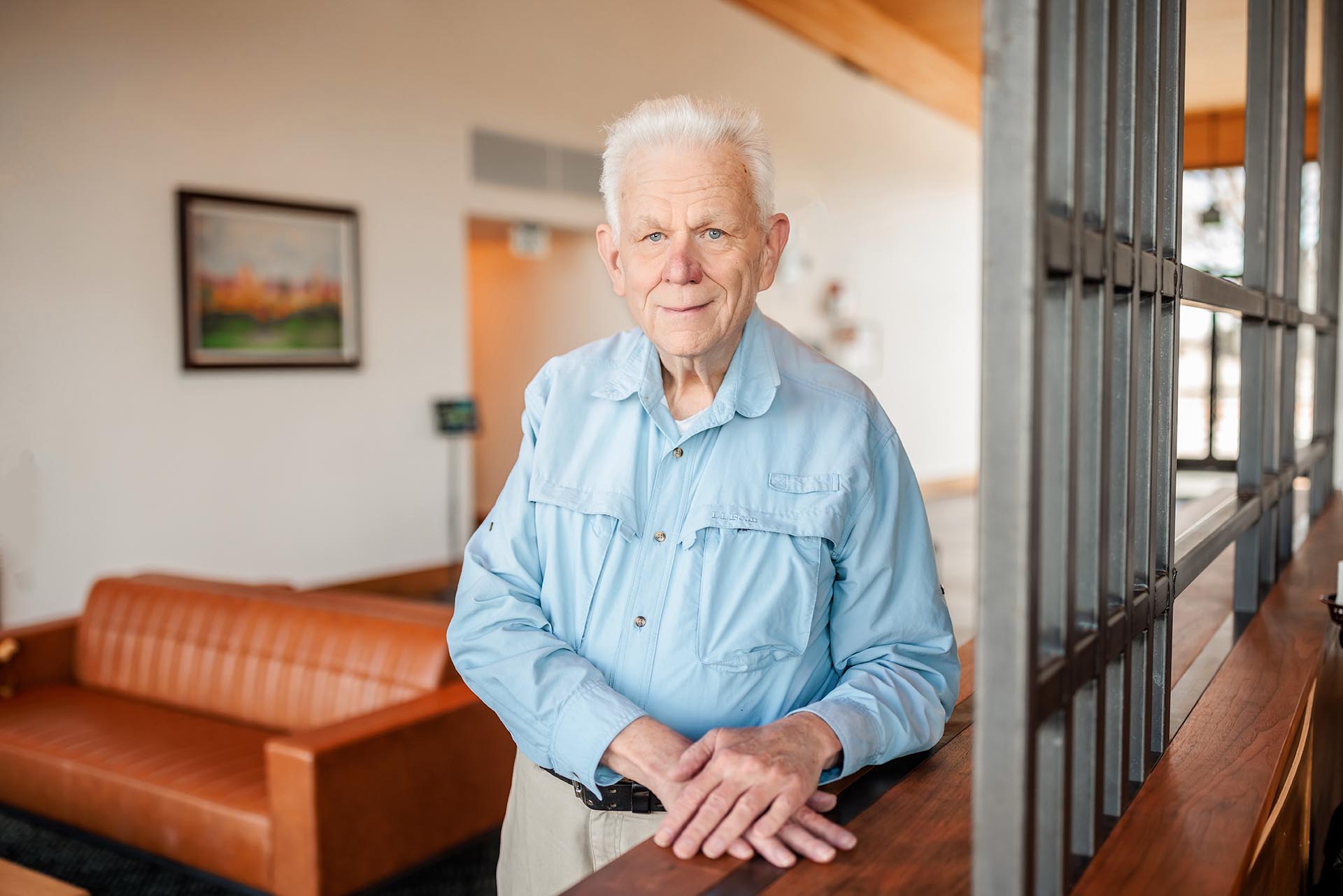
Leonard’s long tenure in the classroom is matched by his reputation among his colleagues.
“Steve is a gem,” said Matt Makley, Ph.D., chair of MSU Denver’s Department of History. “According to many working in the field, he is one of the top living historians of Colorado.”
He’s also among the most prolific, with an extensive body of work covering the Centennial State’s heritage.
Leonard wrote his Ph.D. dissertation on Denver’s immigrants and went on to cover everything from the state’s rough-and-tumble frontier days to its modern economy. His monumental “Colorado: A History of the Centennial State,” a textbook co-authored with Carl Abbott and Thomas J. Noel, is in its fifth edition. Other noteworthy volumes include “Denver: Mining Camp to Metropolis” with Thomas J. Noel and “Trials and Triumphs: A Colorado Portrait of the Great Depression.” In addition to his work at the University, Leonard served on the Denver Landmark Commission for 15 years.
RELATED: Will ‘historical amnesia’ doom COVID-19 response?
More recently, Leonard’s research on the state’s 1918 influenza pandemic has drawn attention in the age of Covid-19. And his 2002 book “Lynching in Colorado, 1859-1919” remains relevant as the nation grapples with racial injustice.
“Recent attention to the racial-terror lynching of 15-year-old Preston Porter Jr. by burning near Limon in 1900 has highlighted some of my research,” said Leonard. In recent years, he assisted a group that recognized Porter’s lynching with a soil-collection ceremony east of Limon and historical marker in downtown Denver.
Leonard got interested in the state’s uglier legacies “because I realized that history was often sanitized and sugarcoated by boosters and others who wanted it to serve their interests,” he said.
His decades-long career has drawn to an end. But the work, he says, should continue.
RELATED: Colorado’s legacy of women’s suffrage
“Much remains to be done,” said Leonard. “We lack a comprehensive history of Latino people in Colorado, of Black people, of people of Asian heritage. More should be done on all marginalized groups, on women’s history and on the environmental movement.
“The list of underresearched topics is long. Unfortunately, the laborers are few. At a time when we desperately need to understand our past to fashion a better future, we seem to be less and less inclined to promote the study and dissemination of history.”
That didn’t stop Leonard from teaching thousands of would-be historians at MSU Denver while watching the school grow and change. Along the way, he says, the University’s top administrators, including President Janine Davidson, Ph.D., have kept MSU Denver “steadfast” in its mission to provide a high-quality, accessible higher education to students.
Leonard says he’ll play his newfound retirement by ear and that he hasn’t made plans beyond eating lunch, catching a mouse and vacuuming his carpets. Meanwhile, his students and colleagues will carry on the work he began. So what does he want them to know?
“They should question what they think they know,” Leonard said, “and explore what they don’t know.”

